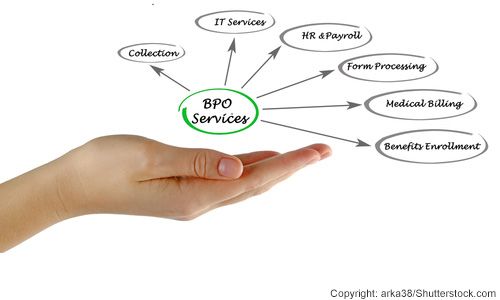Can Outsourcing Help Improve the Patient Experience?
By: Michelle Cavanaugh, RN, CPC More medical practice are looking at outsourced billing. There are many potential benefits to outsourcing, including improving the patient experience.
By: Michelle Cavanaugh, RN, CPC

According to a 2015 Black Book report, 85 percent of solo and small physician practices are evaluating a switch to outsourced billing. The report suggests this is because many feel their processes are out of date and that profitability is declining.
As more physicians look to buck the employment trend and stay independent, outsourcing medical billing is gaining appeal. It can not only reduce personnel headaches, but it can help increase revenue through the use of best practices and specialty-trained billers.
What rarely gets mentioned is that outsourcing billing and other tasks in your practice can also improve the patient experience. Nearly 50 percent of patientshave trouble understanding their medical bills, and billing issues are often cited by patients as a frustration.
Despite these issues, practices can be hesitant to change their processes around patient collections for fear of upsetting patients or causing more problems in collection. However, the reality is that having clear policies, processes, and procedures often has the opposite effect.
First, by checking eligibility and completing prior authorizations, your practice can help ensure coverage and provide accurate information to patients about their portion of the bill. This can be done in-house or you can outsource. Outsourcing may be more cost-effective. Often, eligibility can be done electronically and prior authorizations are done on a flat fee for a set number of transactions with a per transaction fee after that. When done in house, prior authorizations are expensive at around $11 a piece according to the American Medical Association (AMA).
Ensuring coverage also helps your practice collect copays at the time of service. This can reduce overall patient A/R and post-visit collections, benefiting both the practice and the patient. Then, after the visit the patient due amounts can be handed over to your billing service. Essentially, your practice is done with handling the patient collections after the copay is collected.
The billing service transfers patient due amounts upon receipt of explanation of benefits and electronic remittance advice and sends out professional patient statements. Your billing service also handles patient billing calls, removing this from your phone queue. That not only benefits patients looking for more information about their bill, but also other patients who might have waited on hold while your staff talked to someone about a billing issue.
Since one of the other top complaints from patients is wait times, cutting the number of phone calls into the practice can improve the experience for everyone. When patients call your practice, they can wait as long as seven minutes or more on hold. At the same time, patients at the front desk may be kept waiting. Reducing billing-related calls can help with this issue. Outsourcing your incoming calls can also help. There are services that will manage your incoming calls and deal with appointment setting, prescription refill requests, and other patient needs.
Outsourcing phone calls leaves your staff free to focus on patients who are in the office. It also reduces on-hold time for patients because the service has more staff to handle a higher volume of calls. So patients get a better experience both on the phone and in person.
If your practice is struggling with patient satisfaction around phone call wait time, patient collections, and in office wait times, outsourcing might help. And it may do so at a reduced cost compared to what you pay today, while also potentially reducing staff management, which is often a time consuming task.